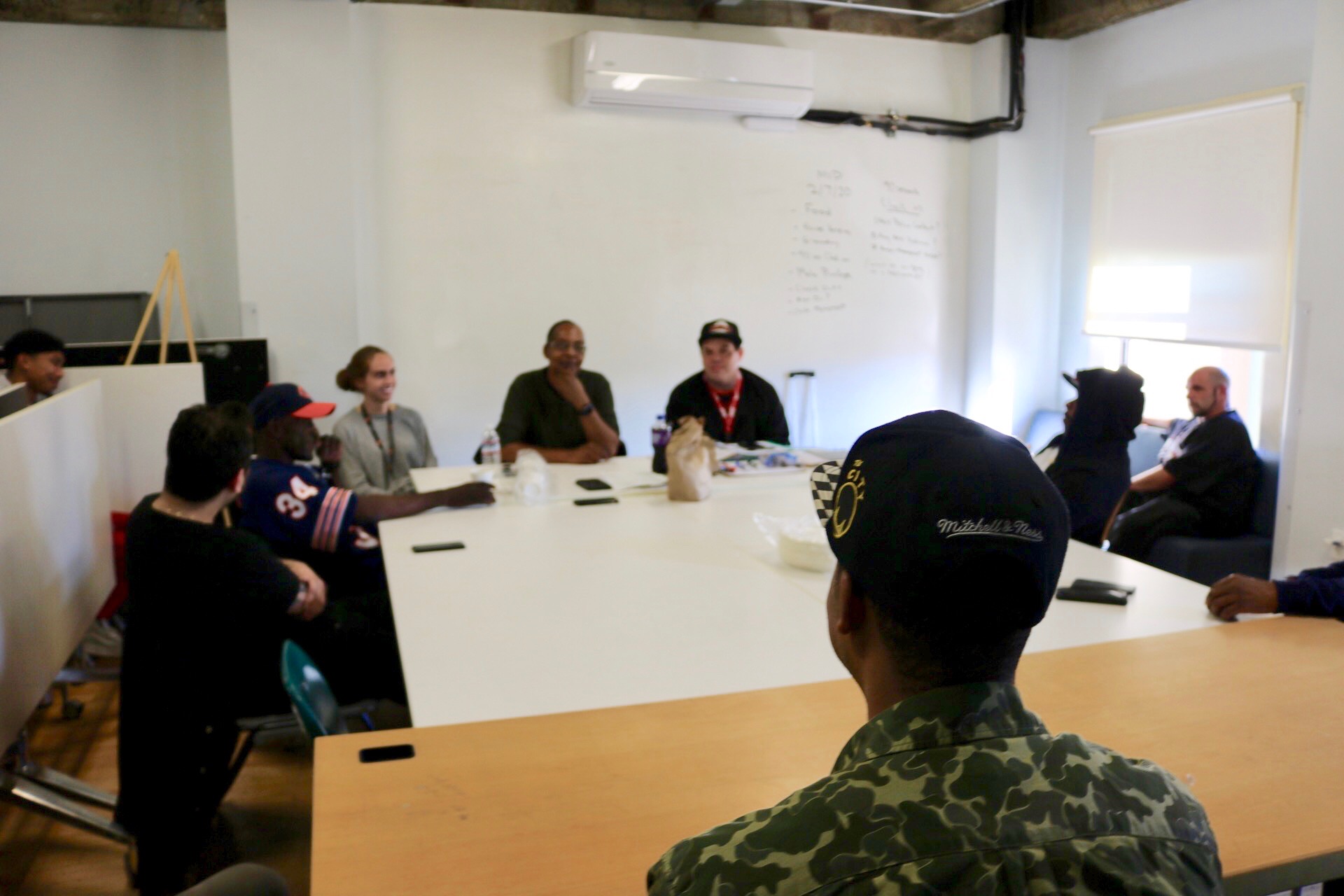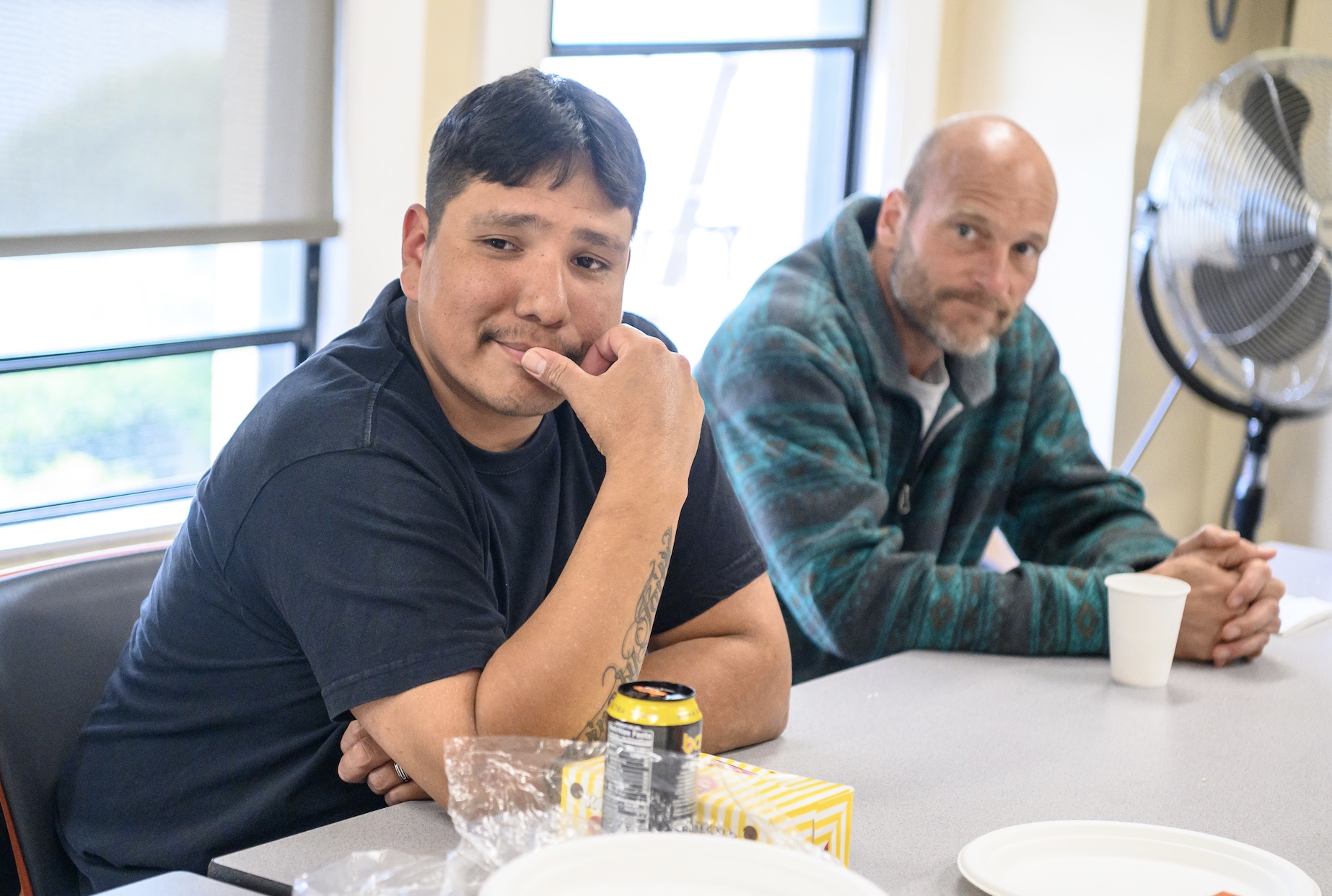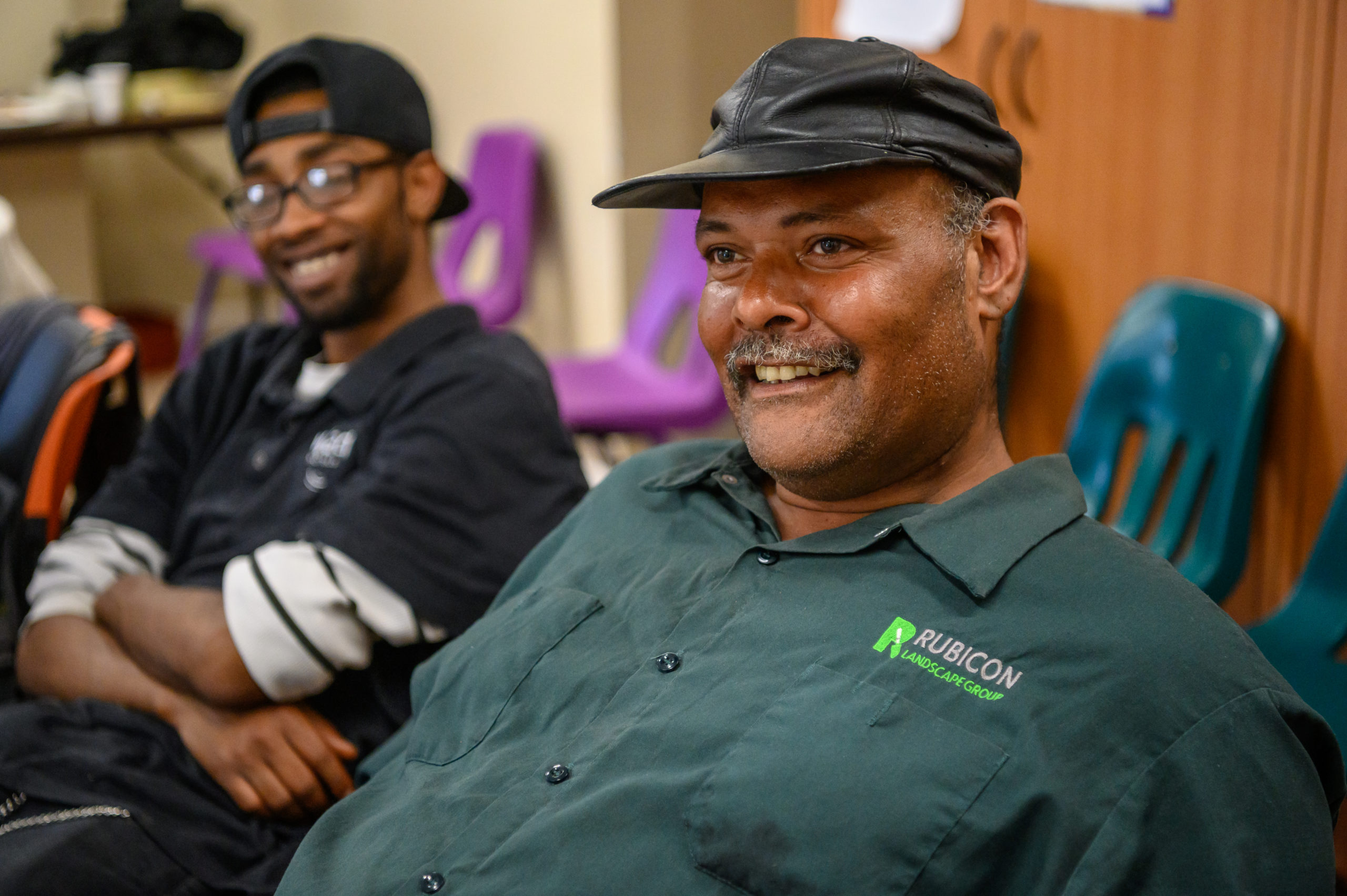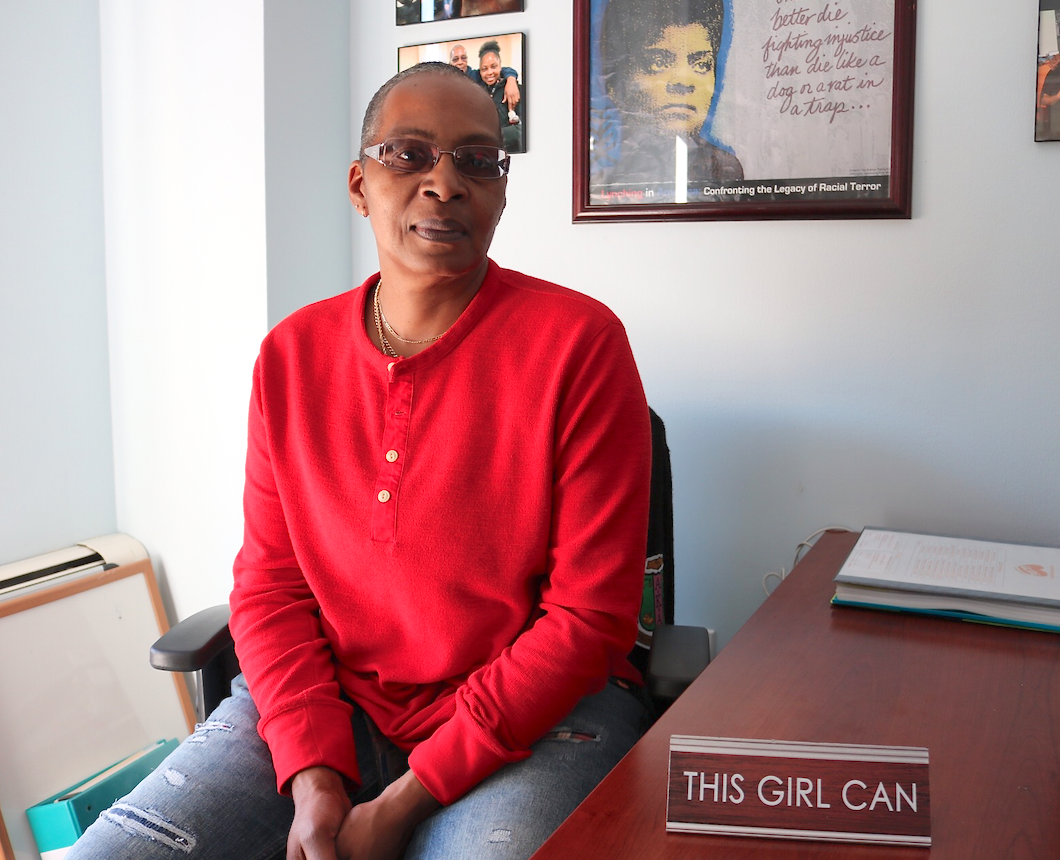Saundra Haggerty on GLIDE’s Men In Progress violence-intervention program
Saundra Haggerty is the lead facilitator and case manager for GLIDE’s Men In Progress (MIP) program, a 52-week court-mandated Batterer’s Intervention program that supports men in acquiring the skills they need to work through their anger and change their violent behavior. GLIDE’s MIP is one of the few free programs of its kind in California, and the only free program in the Bay Area. In her reflections, Saundra shares what it is like being a woman in a space aimed at supporting men in unlearning violence, which in many cases has previously been targeted towards women.
The following is the third installment in our series honoring the vital work of case managers by examining the complexity and compassion that goes into supporting participants in accessing the resources they need in order to improve their relationship with their partners, children, family, friends, community and themselves.
Being a woman in charge of running the Men In Progress program is hard. I facilitate three group sessions every week for men that have been court ordered to attend because of their violence. Each class is about two hours long and has at least 24 men.

As a facilitator I spend a lot of time working on communication. I help men manage real life conflicts and learn how to communicate with their partners. I have a guy in the program right now who is having problems with the mother of his kids. He comes to group and presents a situation and asks, “What could I have done better, Saundra? You are a female so you must understand where she is coming from.”

As a case manager I spend most of my time making sure that the men successfully complete their mandate. This entails identifying any barriers to their completion. I am in frequent contact with parole and probation officers. The court requires a written assessment once a month to report on each participant’s attendance, how they are doing in class and whether we see them taking accountability for their behavior. I spend a lot of time assessing the men on what they are learning and what they feel they need to learn.
We have quite a few men in the program that are homeless, which makes everything so difficult. Many of the men have to bring all their belongings with them to each group multiple times a week. Those who are staying in shelters have a strict timeframe when they have to be back at the shelter location or else they lose their bed for the night, so I write letters to verify that they were in class so that they can get a late pass. In addition to group sessions, I do one-on-one meetings with men who need additional support, whether that is resources or someone to listen to them.
Before this, I worked in GLIDE’s Women’s Center, which dealt with the other side—providing a safe haven for women who have survived domestic violence. Initially, after the experience of supporting women on their road to recovery from violence, working with men who had perpetrated violence was difficult. Just the language used during group can be violent and offensive. I often have to correct participants by saying, “We don’t call women that,” and explain why. Many of the movies that are part of the curriculum, aimed at showing men how damaging their behaviors can be, can really get me in the gut sometimes. Some of them portray women getting beat up and killed. It can be very graphic.
Nevertheless, I believe it is important for everybody to understand that all behavior is learned behavior. These men did not come into this world being violent. Yes, they have done some bad things, but it doesn’t mean that they are bad people.

Many of the men I work with came from abusive childhoods. They learned violence in their homes and were never taught how to manage the rage or anger that followed. Many of the African American men in the program come from single parent households where their mothers were struggling to provide for their families. Their definition of what a man should be is taught in these environments that are far too often violent.
What our program seeks to do is help these men unlearn this type of behavior by understanding where this behavior comes from, where it was learned. We call this “unpacking.” And as we go through this curriculum, at some point the lightbulb goes off. I have heard countless men say, “You’re right, Saundra. I wasn’t born like this.”
I feel honored that this program gives me insight into how men think and why they think the way they do. What I have learned is that these men are also victims in many ways. It feels good working with these men, knowing that by helping them I am also helping those women I used to serve. This work is about healing—healing the family, healing the community and healing themselves. Somebody has to do this work, and who better than a woman?

By Erin Gaede
